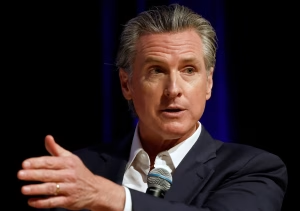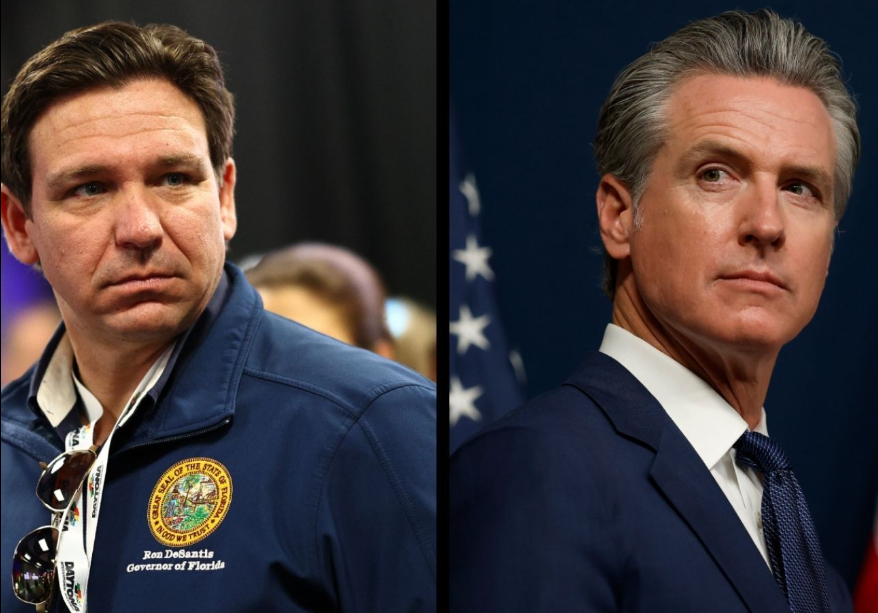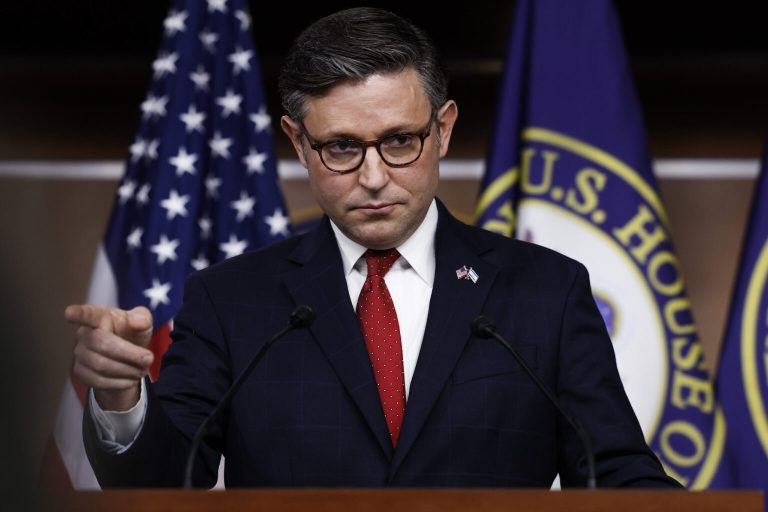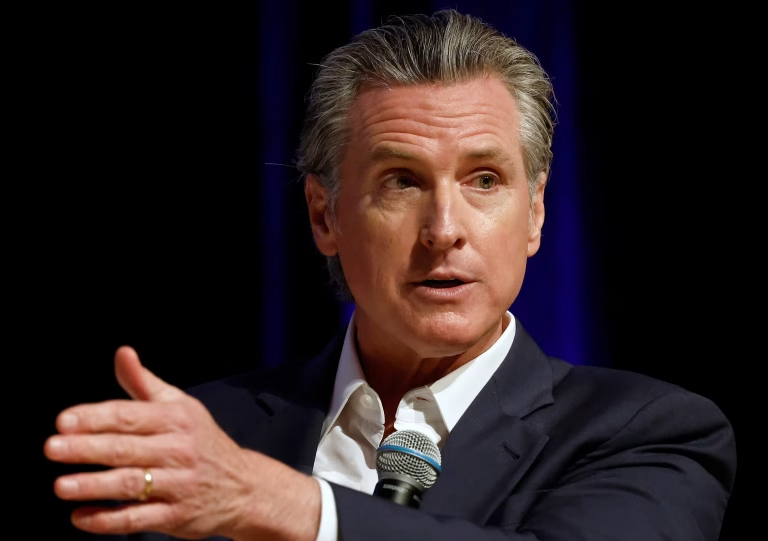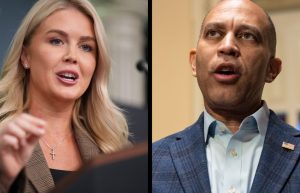A new interstate legal clash has emerged, pitting Florida against California and Washington in a case that could reshape how states license commercial truck drivers and enforce federal safety standards. The lawsuit, filed directly with the U.S. Supreme Court, challenges whether states can issue commercial driver’s licenses (CDLs) to individuals who are in the country without legal status — and whether those policies violate federal transportation laws.
Florida Attorney General James Uthmeier announced the lawsuit in mid-October, framing it as a matter of public safety and federal accountability. The petition, filed under the Court’s original jurisdiction for disputes between states, argues that California’s and Washington’s licensing programs “undermine national highway safety” by allowing individuals who fail to meet federal English-language and training requirements to operate heavy commercial vehicles across state lines.
“The federal government has refused to act, so Florida will,” Uthmeier said during a press briefing in Tallahassee. “We can do everything right on our roads, but when other states issue licenses to drivers who don’t meet the federal standards, the consequences cross borders — and families pay the price.”
A Deadly Incident That Sparked a Legal War
The case traces back to a tragic crash on Florida’s Turnpike in August 2025. According to the lawsuit, a tractor-trailer operated by 28-year-old Harjinder Singh made an illegal U-turn, causing a multi-vehicle collision that killed three people. Singh, who reportedly held a commercial license issued by California, is an undocumented immigrant from India currently facing vehicular homicide and immigration-related charges.
The Florida Attorney General’s office alleges that Singh had limited English proficiency and was unable to read certain road signs — deficiencies that, the state claims, should have disqualified him from obtaining a CDL under federal law. The lawsuit argues that California’s licensing framework effectively ignores federal rules requiring commercial drivers to “read and speak English sufficiently to converse with the general public and understand highway traffic signs and signals.”
“California’s decision to issue CDLs without verifying immigration or language status is not just a bureaucratic oversight,” the petition states. “It’s a public safety hazard with national consequences.”
Multiple local outlets, including Truck Driver News and WPEC, reported that the crash galvanized Florida officials to pursue stronger enforcement of federal transportation standards. Inspection stations along Interstate 10 and agricultural checkpoints across the state have since begun verifying the credentials of out-of-state truck drivers, resulting in dozens of detentions and referrals to immigration authorities.
Federal Safety Standards at the Center of the Debate
At the core of Florida’s lawsuit lies a complex intersection of state authority, federal law, and immigration policy. The state’s complaint cites the Federal Motor Carrier Safety Regulations (FMCSR), which outline national qualifications for commercial drivers, including language proficiency, testing, and training standards. Florida argues that California and Washington have failed to comply with these federal rules by issuing CDLs to individuals who are not authorized to reside or work in the United States.
In support of the lawsuit, the filing points to several alleged deficiencies: the lack of standardized verification processes, the absence of English-language assessments, and what Florida calls “a systemic disregard” for federal oversight. “California and Washington have chosen to prioritize political ideology over safety,” the complaint reads, calling their policies an “actionable public nuisance.”
The Washington Examiner, CBS News, and Truck Driver News all confirmed that Florida’s petition specifically requests the Supreme Court to prohibit both states from issuing CDLs to undocumented individuals and to declare such practices in violation of federal transportation law. The lawsuit also calls for “a uniform national standard” to prevent individual states from creating inconsistent licensing policies.
Federal Action and Funding Fallout
While the legal fight escalates, the federal government has already taken its own measures. The U.S. Department of Transportation (DOT) recently withheld approximately $40 million in highway funding from California, citing the state’s failure to enforce English-language requirements for commercial drivers. An AP News report confirmed that the DOT has given California 30 days to comply with federal regulations or face an additional $160 million in withheld funds.
A DOT spokesperson described the decision as part of a broader initiative to “ensure compliance with federal motor carrier safety standards.” The move marks one of the most aggressive funding penalties in recent years against a state for transportation-related violations, signaling that the federal government may be aligning with Florida’s safety concerns — at least on regulatory grounds.
At the same time, new federal rules are being introduced that tighten noncitizen eligibility for commercial driver’s licenses. According to Reuters and AP News, these updated regulations will require applicants to verify visa status, limit eligibility to specific work-authorized visa categories, and strengthen English-language testing standards. The reforms are expected to go into effect nationwide by early 2026.
Transportation experts say the new measures could have far-reaching effects on the U.S. logistics industry, particularly in states with large immigrant driver populations. Some industry groups have warned that the changes might exacerbate the national truck driver shortage, while others argue that they are necessary to restore consistency in enforcement.
Political Reactions and Broader Implications
Florida’s lawsuit has reignited long-standing political tensions over immigration policy and state sovereignty. Governor Ron DeSantis and Attorney General Uthmeier have positioned the case as part of a broader effort to “hold sanctuary states accountable,” accusing California Governor Gavin Newsom of enabling unsafe practices through permissive state laws.
California officials, meanwhile, have defended their licensing policies as essential for road safety and regulatory oversight. By allowing undocumented individuals to obtain driver’s licenses — including, in some cases, commercial licenses — California argues that it reduces unlicensed driving and ensures that all drivers, regardless of immigration status, are trained, tested, and insured.
“Denying licenses doesn’t make roads safer,” one California transportation official said in a statement. “It pushes more unlicensed and untrained drivers onto the road. Our system focuses on safety, not immigration status.”
Legal scholars say the Supreme Court faces a difficult question: whether one state’s policy can be challenged by another under the Court’s original jurisdiction, and whether such policies indeed conflict with federal law. Historically, the Supreme Court has been reluctant to intervene in interstate disputes involving social or political policy rather than environmental or resource conflicts.
“This is an unusual and ambitious case,” said Dr. Michael Bergman, a professor of constitutional law at Georgetown University. “Florida is asking the Supreme Court to wade into a policy dispute that touches on immigration, transportation safety, and federalism — three of the most politically charged areas of American law.”
A Decision That Could Set Precedent
If the Supreme Court agrees to hear the case, it could set a major precedent on how far states can go in regulating driver qualifications and how those regulations interact with federal authority. A ruling in Florida’s favor could restrict states like California and Washington from maintaining licensing systems that include undocumented residents. A ruling against Florida, however, could reaffirm state autonomy and validate California’s approach as a matter of public safety policy.
For now, the Court has not yet announced whether it will take up the case. Under its rules, at least four justices must vote to grant Florida’s petition for it to proceed. If the Court declines, the lawsuit could still influence ongoing federal and state-level policy debates on commercial licensing and immigration enforcement.
Meanwhile, the families affected by the August crash continue to seek justice in Florida’s courts, where the truck driver at the center of the controversy remains in custody awaiting trial. For them, the legal fight in Washington is more than a political battle — it’s a question of accountability.
“Every day we drive on those same roads,” one family member said outside a courthouse in St. Lucie County. “If this case makes even one state think twice about who gets behind the wheel of a truck, maybe it will save lives.”

Emily Johnson is a critically acclaimed essayist and novelist known for her thought-provoking works centered on feminism, women’s rights, and modern relationships. Born and raised in Portland, Oregon, Emily grew up with a deep love of books, often spending her afternoons at her local library. She went on to study literature and gender studies at UCLA, where she became deeply involved in activism and began publishing essays in campus journals. Her debut essay collection, Voices Unbound, struck a chord with readers nationwide for its fearless exploration of gender dynamics, identity, and the challenges faced by women in contemporary society. Emily later transitioned into fiction, writing novels that balance compelling storytelling with social commentary. Her protagonists are often strong, multidimensional women navigating love, ambition, and the struggles of everyday life, making her a favorite among readers who crave authentic, relatable narratives. Critics praise her ability to merge personal intimacy with universal themes. Off the page, Emily is an advocate for women in publishing, leading workshops that encourage young female writers to embrace their voices. She lives in Seattle with her partner and two rescue cats, where she continues to write, teach, and inspire a new generation of storytellers.


